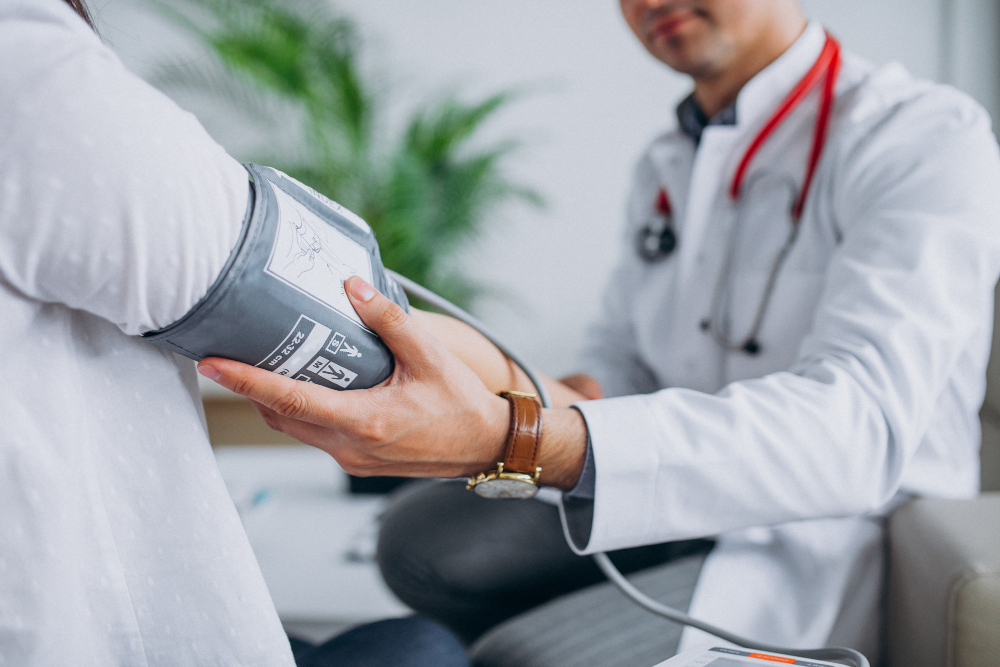Hypertension

Understanding Hypertension:
Hypertension is a chronic medical condition characterized by elevated blood pressure levels persistently above normal ranges. It is often referred to as the “silent killer” because it typically does not cause noticeable symptoms but can lead to serious health complications over time. Hypertension is a significant risk factor for conditions such as heart disease, stroke, kidney disease, and other vascular disorders.
Diagnosis: Diagnosing hypertension involves measuring blood pressure using a sphygmomanometer, a device that records two numbers: systolic pressure (the pressure when the heart beats) and diastolic pressure (the pressure when the heart rests between beats). A diagnosis of hypertension is typically made if blood pressure readings consistently exceed 130/80 mmHg. Additional tests may be performed to assess organ damage or identify underlying causes of hypertension, such as kidney disease or hormonal disorders.
Management Strategies: Managing hypertension typically involves a combination of lifestyle modifications and, if necessary, medications to control blood pressure and reduce the risk of complications. Here are key components of hypertension management:
Lifestyle Modifications:
- Dietary Changes: Adopting a heart-healthy diet rich in fruits, vegetables, whole grains, and lean proteins while limiting salt, saturated fats, and processed foods.
- Regular Exercise: Engaging in regular physical activity such as brisk walking, cycling, swimming, or jogging for at least 30 minutes most days of the week.
- Weight Management: Maintaining a healthy weight through a balanced diet and regular exercise can help lower blood pressure and reduce the risk of complications.
- Limiting Alcohol and Caffeine: Moderating alcohol intake and limiting caffeine consumption may help lower blood pressure levels.
- Stress Management: Practicing relaxation techniques such as deep breathing, meditation, yoga, or mindfulness to reduce stress and promote overall well-being.
Medication Management:
- If lifestyle modifications alone are insufficient to control blood pressure, medications may be prescribed by a healthcare provider. Common classes of antihypertensive medications include diuretics, ACE inhibitors, angiotensin receptor blockers (ARBs), beta-blockers, calcium channel blockers, and others. The choice of medication depends on factors such as the individual’s age, medical history, and specific cardiovascular risk profile.
- If lifestyle modifications alone are insufficient to control blood pressure, medications may be prescribed by a healthcare provider. Common classes of antihypertensive medications include diuretics, ACE inhibitors, angiotensin receptor blockers (ARBs), beta-blockers, calcium channel blockers, and others. The choice of medication depends on factors such as the individual’s age, medical history, and specific cardiovascular risk profile.
Regular Monitoring and Follow-up:
- Regular blood pressure monitoring and follow-up visits with a healthcare provider are essential to track progress, adjust treatment as needed, and address any concerns or complications that may arise.
